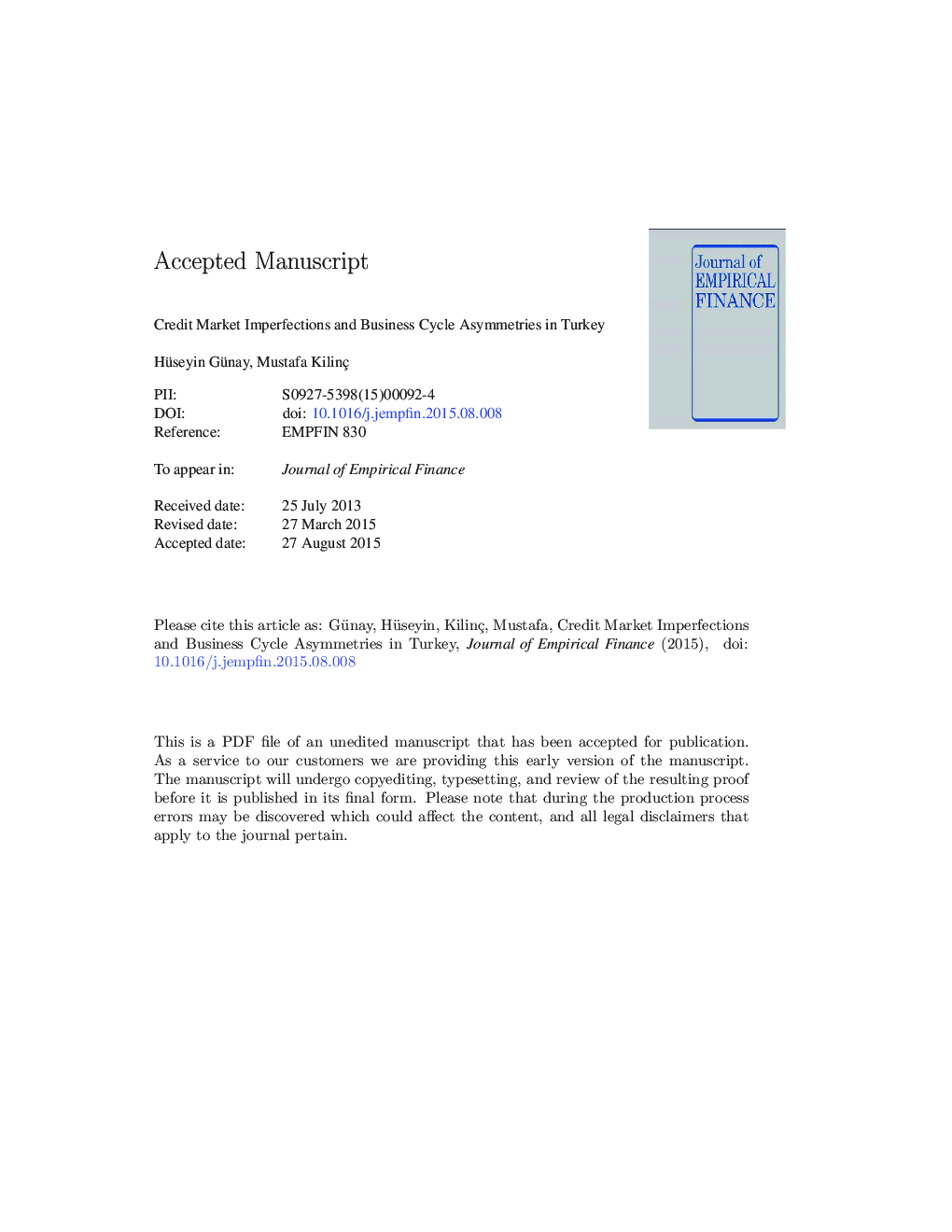| Article ID | Journal | Published Year | Pages | File Type |
|---|---|---|---|---|
| 7360739 | Journal of Empirical Finance | 2015 | 44 Pages |
Abstract
The credit market imperfections have important consequences for aggregate cycles, especially for developing countries. The research on the relationship between imperfections and output dynamics at the macro-level is ample, but the lack of wide coverage micro-data sets for developing countries limits the study of aggregate implications of the micro-level capital market imperfections. This paper presents micro-evidence on the credit market imperfections in Turkey and connects these imperfections to macro-movements. The first part of the paper documents the aggregate boom-bust cycles in Turkey and shows that the non-tradable sector is more volatile over the business cycle than the tradable sector. Additionally, this sector based asymmetry is found to be strongly correlated with aggregate credit movements. To establish the connection between the sector based asymmetries and the credit markets further, the second part of the paper constructs two micro-data sets. Using structural estimation, we find that the non-tradable sector is financially more constrained than the tradable sector. With the non-tradable sector being more constrained, credit movements become an important determinant of boom-bust cycles. Therefore, we can establish that the asymmetry in the financial constraints of the different sectors at the micro-level can generate the observed asymmetrical aggregate response of sectors over the business cycle.
Related Topics
Social Sciences and Humanities
Economics, Econometrics and Finance
Economics and Econometrics
Authors
Hüseyin Günay, Mustafa Kılınç,
